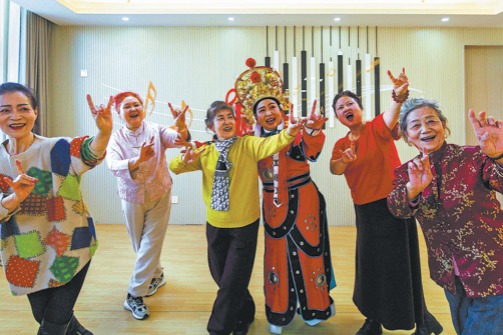Understanding China from inside requires patience
By Jiao Jie | China Daily | Updated: 2023-08-14 08:54

It's always tough to explain Chinese political or ideological phrases that are exclusive to our society to my expat colleagues. I ran into this problem again when I was pitching a new video idea, themed diaocha yanjiu or "investigation and research", to the hosts of our news column Potside Chats, where Chinese matters are discussed over a meal.
Their initial reaction was, "Yeah, research is important, we even did that with our theses. What's special?"
My colleague Nathan Williams, from the United Kingdom, even jokingly brought up his favorite character, Moriarty, in the crime drama Sherlock and started role-playing while we were brainstorming.
To get everyone on the same page, we started browsing books and stories about the history of the Communist Party of China. We did a comprehensive retrospective into Party leaders at different times in history and the decisive moves they made during changing times.
We came to this conclusion: thorough research and detailed fact-finding are always the prerequisites for making judgments.
Our host, Stephanie Stone, even headed to Xunwu in Ganzhou city, Jiangxi province, to take a closer look at how Chairman Mao Zedong did his "investigation and research" in 1930. She expressed amazement when she saw a photo in the Xunwu Research Memorial Hall of Mao working in the fields in the summer heat, wiping away sweat.
Mao would spend days in the fields laboring with the farmers so he could make their acquaintance and chat with them to get a deeper and more detailed understanding of the town.
"It's very rare to see officials at such a high level to go to the grassroots to get these granular facts and information," Stone said. "US senators or congressman, however, are often criticized for being a little disconnected from the people they're supposed to represent. Some of them just sit in their office and listen to lobbyists."
After conducting their own extensive investigation and research, my colleagues came to understand the significance of this informed approach.
Chinese people prefer abstract, succinct language, and when it comes to political linguistics with distinct Chinese characteristics, it's usually hard for foreign friends to get through. On the surface, a couple of phrases may stand for nothing but if you have the patience to dig deeper into the context and history, you'll find the underlying wisdom.
That's why we started working on this video series last year by inviting journalists, Chinese experts and academics to sit down and chat over a meal to discuss a different facet of China each time. There are many cultural shocks and mind-blowing opinions during the in-depth discussions. We ourselves have learned a lot about the differences between Chinese and Western culture, for sure.
























